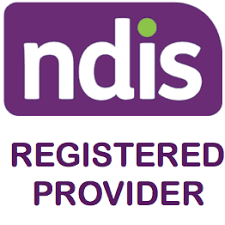Apps
DEFINITION
Tourette syndrome (also known as Gilles de la Tourette syndrome) is a chronic condition affecting the nervous system which causes affected persons to have sudden repetitive twitches, movements or sounds (also known as “tics”). Tics can be likened to hiccups that someone gets and that they cannot control when they start or stop. People who are affected by Tourette syndrome usually do not have control of their body to stop the sudden “tics” for example, they may suddenly start uncontrollably blinking over and over or making grunting sounds unwillingly (APA, 2013; CDC, 2020, Sharp & Corp, 2020; & NINDS, 2019).
CAUSES
Tourette syndrome is a neurological disorder stemming from the developing nervous system called tic disorders. The main cause of Tourette syndrome is not yet fully known, however, there is ongoing research being done. It is hence important to note that from recent research, it has been noted that most cases of Tourette syndrome involve the interaction of multiple gene variations and environmental factors. Most recent research on this syndrome points to possible causes to deviations or anomalies in certain areas of the brain (including the basal ganglia, frontal lobes, and cortex), the circuits that link these areas, as well as the neurotransmitters (dopamine, serotonin, and norepinephrine) in charge of communication between neurons (specific nerve cells).
Some evidence suggests that this syndrome in many cases may be an inherited disorder. As research progresses, it has also been noted that a proportion of people with Tourette syndrome have mutations involving the SLITRK1 gene, which affects how neurons grow and connect with one another. Abnormalities in the NRXN1 and CNTN6 genes (genes that also regulate the normal formation of these nerve connections), also may play a role in Tourette syndrome (APA, 2013; CDC, 2020, Sharp & Corp, 2020; & NINDS, 2019).
TYPES
Tourette syndrome usually exhibits itself through two main types which also depend on the part of the body where the tics occur, the frequency or complexity:
- Motor or vocal tics
- motor tics such as blinking, head or arm jerking, or shoulder shrugging repetitively and involuntarily.
- vocal tics such as humming, yelling out a phrase or word, or throat clearing, sniffing, barking or grunting repetitively and involuntarily.
- Simple or complex tics
- Simple tics are known to exhibit themselves as very brief movements or vocalizations, typically without social meaning. They happen suddenly, briefly, repetitively and involve a limited number of body muscles.
- Complex tics exhibit themselves as longer lasting and may comprise of a combination of simple tics and may sometimes seem to have social meaning (that is they could be recognizable gestures or words) and hence may be misinterpreted as being intentional. However, it is critical to note that those affected are not doing these actions voluntarily and certainly hence they are not a sign of mischief, misconduct or misbehaviour.
(APA, 2013; CDC, 2020, Sharp & Corp, 2020; & NINDS, 2019)
SYMPTOMS
Those affected by Tourette syndrome may sometimes exhibit similar tics at a given period of time, but these tics may be different from one another, have varying intensity or even not occur at the same frequency. In some instances, an affected person may experience tics several times within the same hour and then they remit or disappear for a few months. The main symptoms of Tourette syndrome are tics, these include:
- Uncontrollable and repetitive blinking
- Uncontrollable and repetitive frowning
- Uncontrollable and repetitive head or arm jerking
- Uncontrollable and repetitive shoulder shrugging
- Uncontrollable and repetitive grunting or barking
- Uncontrollable and repetitive sniffing or snorting
- Uncontrollable and repetitive throat clearing
(APA, 2013; CDC, 2020, Sharp & Corp, 2020; & NINDS, 2019)
Behaviour Help
If you are supporting an individual with this diagnosis, please refer to our services and resources. They aim to help children, adolescents and adults achieve better communication, social, emotional, behavioural and learning outcomes. So whether you are wanting guidance on parenting, teaching, supporting or providing therapy, Behaviour Help is at hand.
Note: This is not an exhaustive list of all the possible causes, symptoms and types but some general information that can be further explored. Based on what you have read if you have any concerns about an individual, please raise them with the individual/s. The caregiver can then raise these concerns with their local doctor who can provide a referral to the relevant professional (e.g. paediatrician, psychologist, psychiatrist, allied health professional and learning specialists) for diagnosis and treatment if appropriate.
Get Started with Behaviour Help App
Assess-manage-prevent behaviours of concern efficiently and effectively with the Behaviour Help App.



